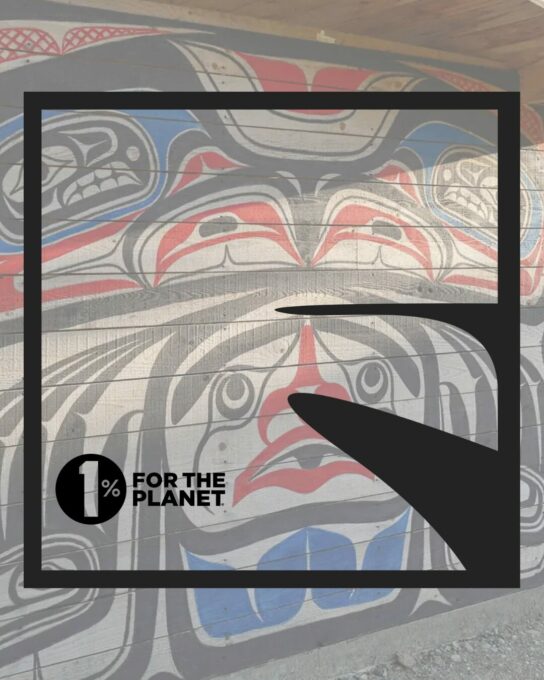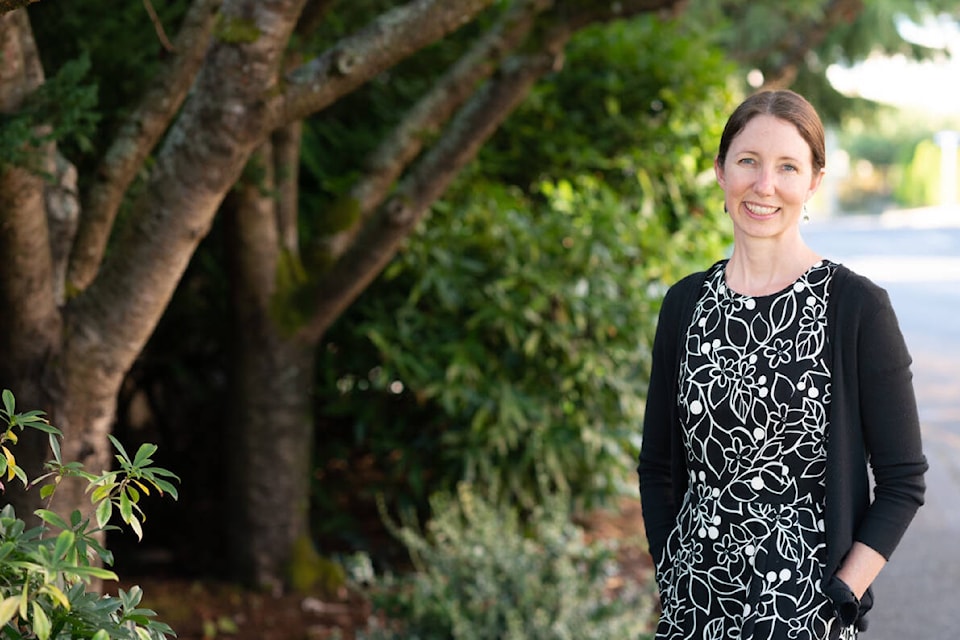Supporting Indigenous-Led Climate Action: Faulhaber Partners With Ecotrust Canada

-
category1% For The Planet
-
authorTara Rae Anderson
-
dateJuly 9th, 2025
As proud members of 1% for the Planet, Faulhaber is committed to supporting Canadian organizations that are driving meaningful environmental and social change. As part of our annual monetary contributions, our team elected to donate $4,000 to Ecotrust Canada—a nonprofit that works in partnership with Indigenous communities across the country to create resilient, sustainable local economies.
We were drawn to Ecotrust’s commitment to Indigenous-led solutions, community innovation, and climate action rooted in traditional knowledge. To better understand the impact of our support and how businesses like ours can contribute more meaningfully to reconciliation, we connected with Jenn Meilleur Director of Programs & Impact at Ecotrust Canada for a deeper look at their work. Read on for the full Q&A.
1. Can you briefly describe Ecotrust Canada’s mission and how it connects with Indigenous communities?
Ecotrust Canada works in partnership with rural, remote, and Indigenous communities to build an economy that provides for life. Our mission is rooted in advancing community-led solutions that uphold ecological health, equity, and local wellbeing.
Our work with Indigenous communities is shaped by long-term relationships built on trust, respect, and shared goals. We see our role as one of accompaniment—supporting Nations in reclaiming authority over their lands, waters, and economies, and ensuring that the tools and resources we offer are responsive to their priorities and knowledge systems.
2. Can you share a few recent projects with Indigenous communities and the impact they’ve had? If you can share a bit about any active program our donation would help impact, that would be great!
We have partnered with Metlakatla First Nation since 2021 on a regenerative ocean farming project that’s bringing healthy, locally harvested seafood to community tables. There are four farming sites in Metlakatla’s territorial waters, where various kelp species and shellfish thrive in the nutrient-rich harbour. Throughout 2024, our team worked alongside Metlakatla’s aquaculture team to distribute scallops to community members while sharing this local delicacy with visitors to the region. Our first major distribution event took place at the All Native Basketball Tournament in February of 2024. This event draws approximately 4,000 athletes and spectators from across the province. Working together, our team and Metlakatla’s ocean farming crew set up outside the basketball venue, sharing approximately 3,500 freshly harvested scallops with appreciative tournament attendees. You can read more about regenerative ocean farming here:https://ecotrust.ca/latest/blog/your-guide-to-regenerative-ocean-farming-in-northern-bc/
In the of 2024, Dianne Villeseche, Program Manager for Community Food Systems Innovation, harvested and delivered approximately 250 pounds of fresh veggies to the Prince Rupert School Lunch Program on behalf of Tea Creek Farm in Kitwanga, BC. After an early frost hit the farm, a quick response was needed to prevent the produce from going to waste – and thanks to this collaboration, the food was instead put to good use, nourishing local students.
In May of 2024, we celebrated a major policy win when the federal and BC governments announced up to $24,000 in cost coverage for energy-saving heat pumps and electricity upgrades. The decision will provide transformative new funding for households across BC struggling with unaffordable energy bills, extreme heat and cold, and rising costs of home energy retrofits. Ecotrust Canada had been calling on governments to strengthen this program since June 2023, alongside 23 aligned organizations and First Nations.
From Nuxalk Nation, an Indigenous community located on the Central Coast of British Columbia, Carrigan Tallio, Program Manager for the Indigenous Homelands Program, recently introduced the Routes to Roots program. Carrigan comes from a family dedicated to revitalizing culture in her community; to Carrigan, it is because of the strength and knowledge of her family and ancestors, and particularly the guidance of her brother, Clyde, Dr. Snxakila, that she is able to contribute to this work. Since 2018, she has been working on improving housing for the Nation. Carrigan shares the Indigenous Homelands Program’s holistic vision for the Routes to Roots project here:https://ecotrust.ca/latest/blog/routes-to-roots-revitalizing-traditional-corridors-of-exchange/
Your contribution helps us grow this work by funding on-the-ground projects, community engagement, research, and shared learning opportunities that strengthen Indigenous leadership.
3. How does Ecotrust Canada build partnerships that reflect Indigenous priorities and knowledge?
Supporting Indigenous-led initiatives means investing in solutions that are grounded in relationship with the land, rooted in intergenerational wisdom, acknowledging difficult truths about past and ongoing harms, and being responsive to real community needs. Partnership requires trust, humility, and a willingness to follow the lead of Indigenous Peoples.
Every partnership is shaped by the unique goals, histories, and protocols of the Nations we work with. Our teams work collaboratively with Indigenous leaders to co-design programs, honour Indigenous sovereignty, and support community-defined metrics of success.
We are also committed to internal learning and unlearning—deepening our understanding of colonial systems and orienting our work to centre relational accountability.
4. June was Indigenous History Month in Canada. What message would you want to share about supporting Indigenous-led initiatives not just in the month of June, but year-round?
This past June also marked the ten-year anniversary of the Truth and Reconciliation Commission of Canada’s release of its final report. Only 15 of the 94 Calls to Action have been completed so far, which on the one hand feels discouraging but on the other hand speaks to the systemic and complex nature of the work at-hand.
I think it’s really important that our individual and organizational commitments to Reconciliation aren’t just about a single day or a single month – they are hopefully ongoing. I hope that people and organizations will always take time to recognize and celebrate the traditions, cultures, and contributions of First Nations, Inuit and Métis when there are days of significance – if you’re ever invited to a local event, say yes!
5. What advice would you give to businesses looking to align their giving with reconciliation and sustainability?
See your giving not as a box to check, but as part of a broader commitment to reconciliation, equity, and planetary well-being. Businesses have a powerful role to play in shaping the future – Patagonia, who sponsors 1% for the Planet is a great example!
Commit to learning together as a team – it can be included in your regular meetings a few times over the year, for example, so it doesn’t become tokenistic or a tick-box exercise. Be open to what actions arise out of that collective learning. Focus your giving directly to Indigenous-led organizations wherever possible. Consider committing to one organization or cause over a few years to increase your relationship and your impact.
We’re so grateful to Ecotrust Canada for taking the time to share more about their incredible work and are privileged to play a small part in supporting it. Lasting environmental change and meaningful reconciliation are deeply connected, and organizations like Ecotrust demonstrate what’s possible when Indigenous leadership and local knowledge are prioritized.
If you’re feeling inspired, are considering donation or simply want to learn more about Ecotrust Canada’s programs and the communities they partner with, we encourage you to visit ecotrust.ca. We hope you also consider getting involved with 1% for the Planet.
Every step counts—and we’re glad to be on this journey.
